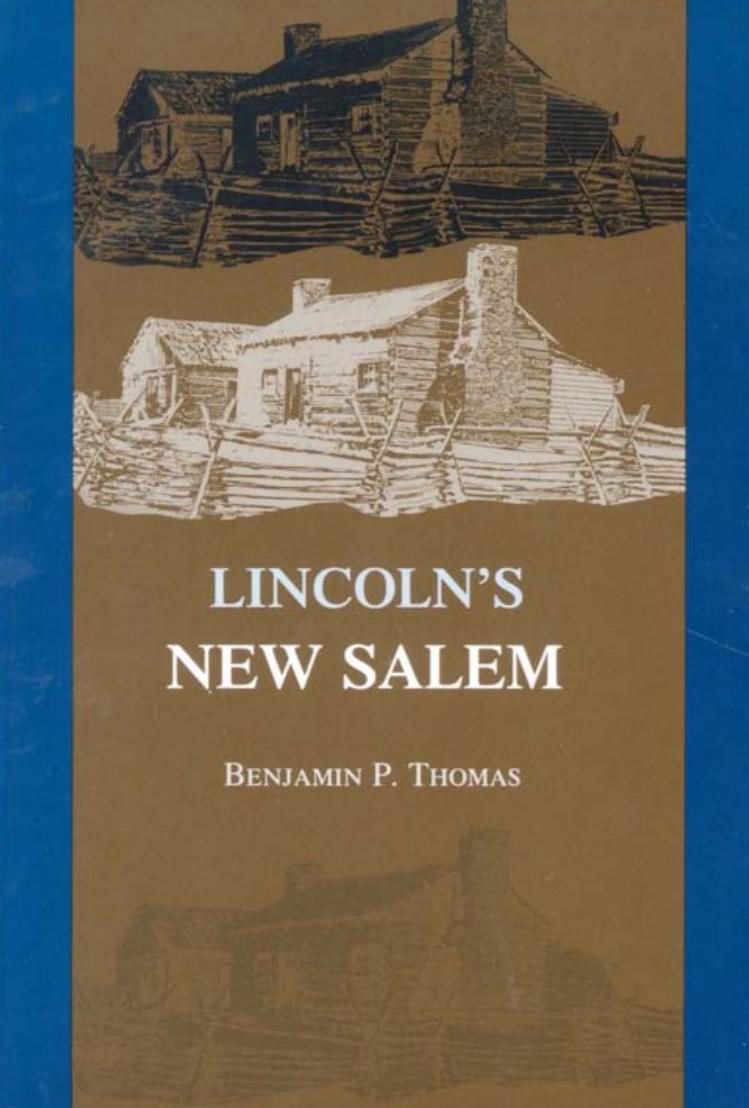Lincoln's New Salem by Benjamin P. Thomas

Author:Benjamin P. Thomas [Thomas, Benjamin P.]
Language: eng
Format: epub, pdf
Tags: History, United States, Civil War Period (1850-1877), Military, Modern, 19th Century
ISBN: 9781787204041
Google: 2xkkDwAAQBAJ
Publisher: Pickle Partners Publishing
Published: 2017-04-07T15:55:35+00:00
William F. Berry was a son of Rev. John M. Berry, but was a confirmed drunkard. He devoted himself to the consumption of the firmâs whiskey, while Lincoln spent most of his time talking, joking and reading books. Naturally, as Lincoln said, such a combination âdid nothing but get deeper and deeper in debt.â
At that time the question of how liquor should be sold was as much a problem as it is today. No license was required to sell it in quantities greater than a quart for consumption off the premises, and practically every general store sold it in that way. It was only when it was sold by the drink, for consumption on the premises that a license was required, and that the seller incurred any degree of opprobrium. Places where liquor was sold by the drink were called âgroceries.â
Lincoln and Berry undoubtedly sold liquor in quantities larger than a quart; but there has long been controversy as to whether Lincoln sold it by the drink. Douglas in his debate with Lincoln at Ottawa, on August 21, 1858, claimed, half jokingly, that when he first became acquainted with Lincoln the latter was a âflourishing grocery-keeper in the town of Salem,â and could âruin more liquor than all the boys of the town together.â Lincoln replied: âThe Judge is woefully at fault about his friend Lincoln being a âgrocery keeper.â I donât know that it would be a great sin, if I had been; but he is mistaken. Lincoln never kept a grocery anywhere in the world.â{25}
In view of this positive denial we may be sure that Lincoln never sold liquor by the drink. Yet, on March 6, 1833, the County Commissioners Court of Sangamon County issued a âtavern license,â permitting the firm of Lincoln and Berry to sell wines and spirituous liquors in quantities less than a quart, and beer, ale and cider in quantities less than two gallons. The following entry appears in the records of the Country Clerk:
Ordered that William F. Berry in the name of Berry and Lincoln have license to keep a tavern in New Salem to continue 12 months from this date and that they pay one dollar in addition to Six dollars heretofore paid as per Treasurerâs receipt, and that they be allowed the following rates (viz)
French Brandy per ½ pintâ25
Peach Brandy per ½ pintâ18¾
Apple Brandy per ½ pintâ12
Holland Gin Brandy per ½ pintâ18¾
Domestic Gin Brandy per ½ pintâ12½
Wine Brandy per ½ pintâ25
Rum Brandy per ½ pintâ18¾
Whiskey Brandy per ½ pintâ12½
Breakfast dinner Supperâ25
Lodging per nightâ12½
Horse per nightâ25
Single feedâ12½
Breakfast, dinner or Supper for Stage passengers who gave bond as required by law.â37¼
It will be noted that the license was taken out by Berry. The bond required in connection with its issuance was signed with Lincolnâs as well as Berryâs name; but neither signature is in Lincolnâs handwriting. Moreover, there is local tradition that sale of liquor by the drink was a primary cause of the dissolution of the Lincoln-Berry partnership. This is probably true;
Download
This site does not store any files on its server. We only index and link to content provided by other sites. Please contact the content providers to delete copyright contents if any and email us, we'll remove relevant links or contents immediately.
| U.K. Prime Ministers | U.S. Presidents |
Waking Up in Heaven: A True Story of Brokenness, Heaven, and Life Again by McVea Crystal & Tresniowski Alex(37808)
Empire of the Sikhs by Patwant Singh(23084)
We're Going to Need More Wine by Gabrielle Union(19046)
Hans Sturm: A Soldier's Odyssey on the Eastern Front by Gordon Williamson(18590)
Leonardo da Vinci by Walter Isaacson(13336)
The Radium Girls by Kate Moore(12028)
Tools of Titans by Timothy Ferriss(8393)
Educated by Tara Westover(8054)
How to Be a Bawse: A Guide to Conquering Life by Lilly Singh(7486)
Permanent Record by Edward Snowden(5847)
The Last Black Unicorn by Tiffany Haddish(5635)
The Rise and Fall of Senator Joe McCarthy by James Cross Giblin(5280)
Promise Me, Dad by Joe Biden(5153)
The Wind in My Hair by Masih Alinejad(5095)
A Higher Loyalty: Truth, Lies, and Leadership by James Comey(4962)
The Crown by Robert Lacey(4814)
The Iron Duke by The Iron Duke(4354)
Joan of Arc by Mary Gordon(4109)
Stalin by Stephen Kotkin(3965)
